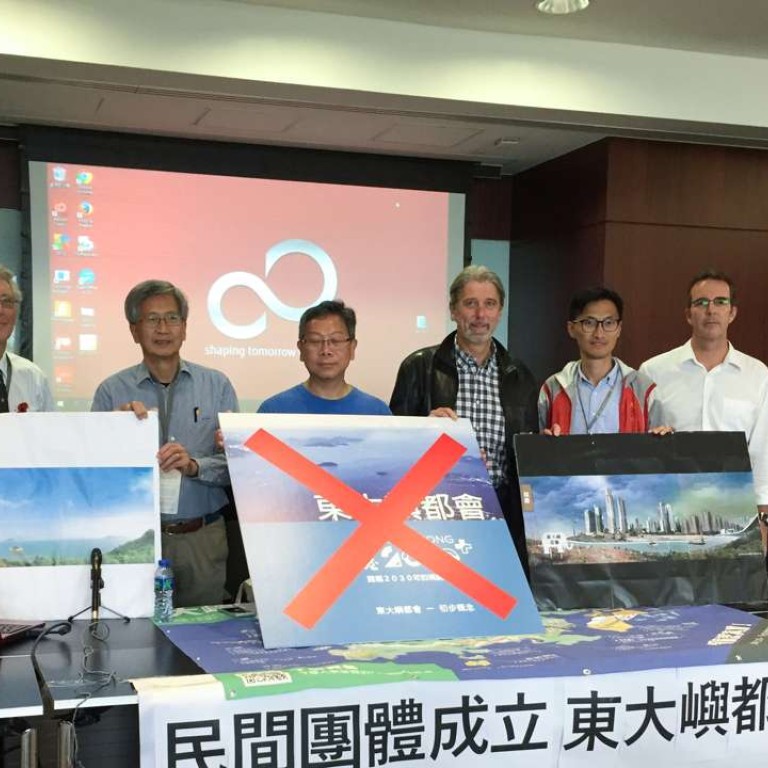
Most local residents have no say in East Lantau Metropolis plans
The latest example was an event to promote the 2030+ plan in Mui Wo, south Lantau, on March 22.
Mui Wo will be transformed by the 2030+ plan, as it is one of the sites targeted for the East Lantau Metropolis. This vast new town is to be built on 1,000 hectares reclaimed around two islands east of Lantau and connected to Mui Wo.
Housing 400,000 to 700,000 people, the metropolis will have a new business district, and new bridges, tunnels, roads and railways linking it with the rest of Hong Kong. It will cost upwards of HK$400 billion, the costliest infrastructure project in Hong Kong’s history.
Even though Mui Wo and south Lantau will be directly impacted by the plan, no community-wide consultation has been held. Instead, the Islands District Councillor for South Lantau, and the Development Bureau and Planning Department organised a meeting at the Mui Wo Recreation Centre on a weekday evening, and publicised it to people who are supportive of the plan.
Notices announcing the event were posted only at rural committee offices and a few shops near them. None was posted in areas of heavy traffic like the Mui Wo ferry pier and town centre, or in Pui O, Cheung Sha or Tong Fuk. The notices highlighted in bold type the rural committees of Mui Wo, Tai O, Tung Chung and South Lantau, which represent indigenous villagers, ignoring the rest of Lantau’s diverse population.
As a result, the meeting was mostly attended by villagers under the four rural committees and committee members.
Lantau has many English-speaking inhabitants but only two of them, finding out about the event two hours before, managed to attend. Clearly, this subterfuge was to ensure a compliant audience and to engineer a show of support that can be presented as “evidence” that a “consensus” was reached on 2030+. In reality, the meeting reflected only the consensus of cheerleading special interests.
It was of a piece with the government’s stacking the Lantau Development Advisory Committee with property developers, tourism operators and other vested interests – another charade to give the appearance of consultation. In fact, the majority of Lantau’s residents have no voice in a development that will affect them the most.
Chai Kim Wah, Mui Wo

